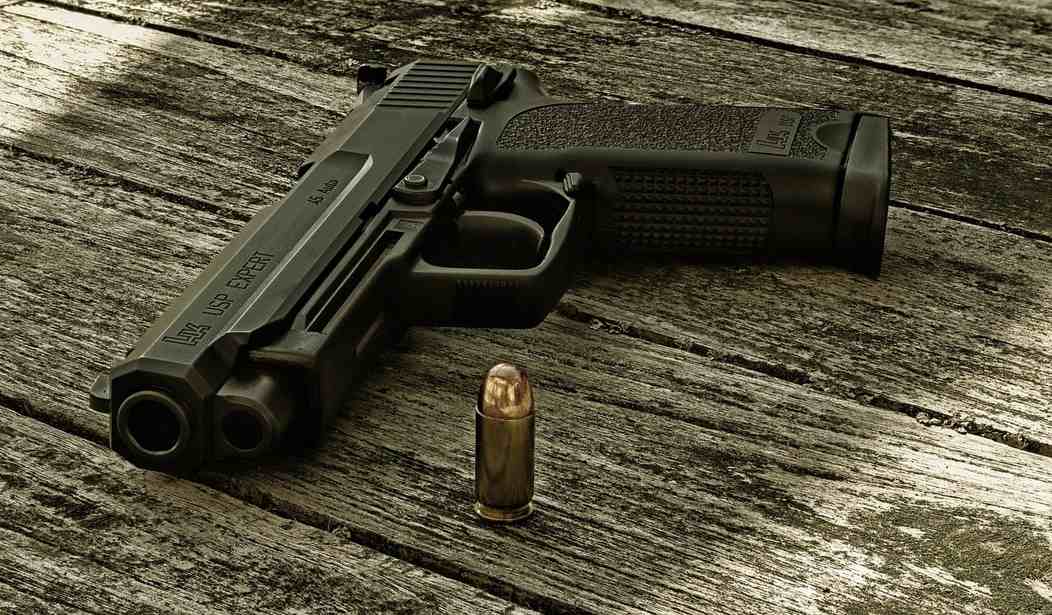The federal government would begin tracking the purchase and possession of all kinds of gun parts, including barrels and slides, under a proposal announced this week by Hawaii congresswoman Jill Tokuda.
Ostensibly aimed at cracking down on the creation of "ghost guns", Tokuda's bill would erect a federal surveillance system for anyone who purchases a common gun part. The "Federal Interstate Firearm Parts Reporting System", as envisioned by Tokuda, would be run by the Department of Justice, but it sounds like the information that would be collected would be available for law enforcement at all levels of government.
The Gun Hardware Oversight and Shipping Act, or GHOST Act, will allow law enforcement to collect and track data about the sale of certain firearm components that can be combined with 3D-printed components to create a functioning weapon.
"There are parts online that you can buy right now, but put together, they make a weapon of destruction," Tokuda said at a news conference Monday at HPD's Ke Kula Maka‘i police academy in Waipahu.
Tokuda demonstrated with a handgun that was almost entirely constructed out of 3d-printed plastic. Only the slide and barrel were legitimately manufactured gun components, she said, but because they could be purchased freely without any need for a registration, anyone with access to a 3D printer can print a gun using easily downloadable plans, order a slide and barrel, and put the two together to create a fully functional gun.
And what exactly will law enforcement do with this information? There's nothing illegal about swapping out a barrel, a slide, or a trigger. In fact, there's nothing illegal about building your own firearm (though attempting to sell it is another story completely). The purchase of a particular gun part isn't evidence of a crime, but it sure sounds like Tokuda wants it to be. Even worse, is the fact that Hawaii law enforcement is backng her Big Brother scheme.
[Honolulu Police Chief Arthur] Logan asserted there are an estimated 500,000 unregistered firearms in the state, but [Director Hawaii Department of Law Enforcement Mike] Lambert said that police can't even take a guess at how many ghost guns are in the state right now, because there is no way for agencies to track the parts that can be used to make them.
"So what [the GHOST Act] would look like is that law enforcement receive a list," Lambert said. "We're seeing, you know, 10 kits that have been received by an individual, but they have no registered firearms, or they're a felon, right? Those type of, that type of information, can create a red flag for us."
Logan said legal, registered firearm owners should still be able to order gun components without extra scrutiny. He explained that many people who assemble ghost guns have parts mailed to fake addresses, or shipping companies make no effort to confirm their parts are being sent toward legitimate users.
If the feds are going to get a list of everyone who ordered a particular gun part then there's no way that "legal, registered firearm owners" wouldn't be surveilled, at least to screen them out of any more intensive scrutiny. But Logan is also apparently confused about the difference between Hawaii's draconian gun laws and the statutes in place at the federal level, where there is no gun registration requirement.
In fact, the Firearm Owners’ Protection Act prohibits "any system of registration of firearms, firearms owners, or firearms transactions or dispositions" established or maintained by the federal government. Tokuda's bill would likely be able to dodge that prohibition, however, since she's not proposing keeping a permanent record of frames or receivers, which is the part of a gun that's defined as a "firearm" under federal law.
The good news is that so long as Republicans are in control of at least one chamber of Congress Tokuda's bill isn't going to move forward. But this is definitely an idea that can be enacted at the state level as well, and I wouldn't be surprised to see lawmakers in Hawaii and other anti-gun states decide to create their own surveillance scheme for gun owners who want to swap out a barrel, a slide, a trigger, or even grips in the future.








